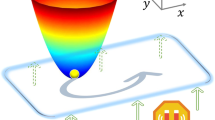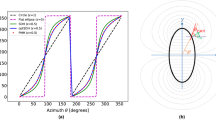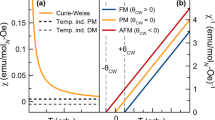Abstract
I AM glad to see from Mr. Rollo Appleyard's letter in NATURE of December 31 that he is satisfied with my reply to his query concerning the place of magnetism in fundamental electrical theory. Of course there can be no question of “annihilating magnetic notions” in view of the existence and properties of permanent magnets; but, as regards the understanding of fundamental physical phenomena, magnetism appears to have played a part similar to that of money in economics—a useful link for facilitating exchange, but a source of unnecessary complexity and confusion in discussion. Since we can formulate the forces acting on moving electric charges directly from Ampère's experiments without introducing magnetism, and thereby dispense with the two stages of reasoning involved in Maxwell's curl equations, it seems decidedly advantageous to do so; and if a magnetic field is merely a translationally moving electric field, as the flux-cutting principle suggests, it seems superfluous to regard it as a separate entity.
This is a preview of subscription content, access via your institution
Access options
Subscribe to this journal
Receive 51 print issues and online access
$199.00 per year
only $3.90 per issue
Buy this article
- Purchase on Springer Link
- Instant access to full article PDF
Prices may be subject to local taxes which are calculated during checkout
Similar content being viewed by others
Author information
Authors and Affiliations
Rights and permissions
About this article
Cite this article
DRYSDALE, C. Magnetism and the Maxwellian Theory. Nature 143, 277–278 (1939). https://doi.org/10.1038/143277a0
Issue Date:
DOI: https://doi.org/10.1038/143277a0
Comments
By submitting a comment you agree to abide by our Terms and Community Guidelines. If you find something abusive or that does not comply with our terms or guidelines please flag it as inappropriate.



